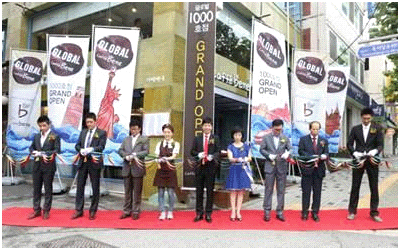
Market Information > Food News Clipping
Food News Clipping
August 23, 2013
2013.08.26
1. GRAIN & OILSEED ISSUES
3,438 Tons of Imported Rice Sold as Domestic Rice in Restaurants in 2012 ¡¦ National Assembly Member Asks for Stronger COO Management [Korean, OSY]
http://news.donga.com/3/all/20130821/57156429/1
Summary: According to Korea National Agricultural Quality Management Service (NAQS) report released to the National Assembly, 3,438 metric tons of imported rice was sold as domestic rice in restaurants in 2012. NAQS added that despite the COO labeling mandated in all restaurants since February, 2011, the number of COO violations on rice in restaurants is showing a sharp increase. National Assembly member CJ Kim commented that the government should develop a tool to prevent COO violations on rice.
2. MARKETING ISSUES
Perno Ricard Korea to Stop Bottling Imperial Whiskey in Korea ¡¦ Local Bottling is Not Economical for Tax Disadvantage ¡¦ Bottling Plant will be Sold to Hite-Jinro [Korean, OSY]
http://www.hankyung.com/news/app/newsview.php?aid=2013082052561
Summary: Perno Ricard Korea (PRK) is reportedly closing its bottling plant in Korea that produced ¡®Imperial¡¯ brand Scotch whiskey. New Imperial products, announced to be released in September, will be all imported from PRK bottling plant in U.K. PRK¡¯s local bottling plant supplied 10 percent of Imperial products sold in Korea. According to the industry, PRK¡¯s decision is because of the disadvantage in local liquor tax charged to locally made (bottled) product. Although imported product and locally bottled product are subject to the same 72 percent liquor tax, the tax on locally bottled product is based on the cost of product plus the cost of sales promotions and the bottler¡¯s profit whereas the tax on imported product is simply based on the cost of product. As a result, locally bottled product pays about 10 percent more liquor tax compared to imported product. Diageo Korea is also reportedly reducing the volume of its local bottling business down to 5 percent.
Café Bene Opens Its 1,000th Store [Korean, OSY]
http://biz.heraldcorp.com/view.php?ud=20130819000345

Is Korean Café Industry Being Saturated? ¡¦ Opinions are Divided [Korean, OSY]
http://www.hankyung.com/news/app/newsview.php?aid=2013081915231
Summary: Many market analysts point out that growth of café industry in Korea is slowing down partly because of the new government regulation that restricts opening of new outlets by large-scale café chains within 500 meter radius from existing outlets. However, others point out that there are still plenty of rooms in suburban areas that can accommodate new outlets.
The information in this report was compiled by the Agricultural Trade Office (ATO) at the U.S. Embassy in Seoul, South Korea. The press summaries contained herein do NOT reflect USDA, the U.S. Embassy, or other U.S. government agency official policy or view point. U.S. food exporters can learn more about market opportunities in South Korea by reviewing ATO Seoul¡¯s Exporter Guide and other reports available at www.fas.usda.gov by clicking on ¡°attaché reports
Agricultural Trade Office, U.S. Embassy - Seoul
Tel: 82-2-6951-6848 Fax: 82-2-720-7921
Email: atoseoul@state.gov